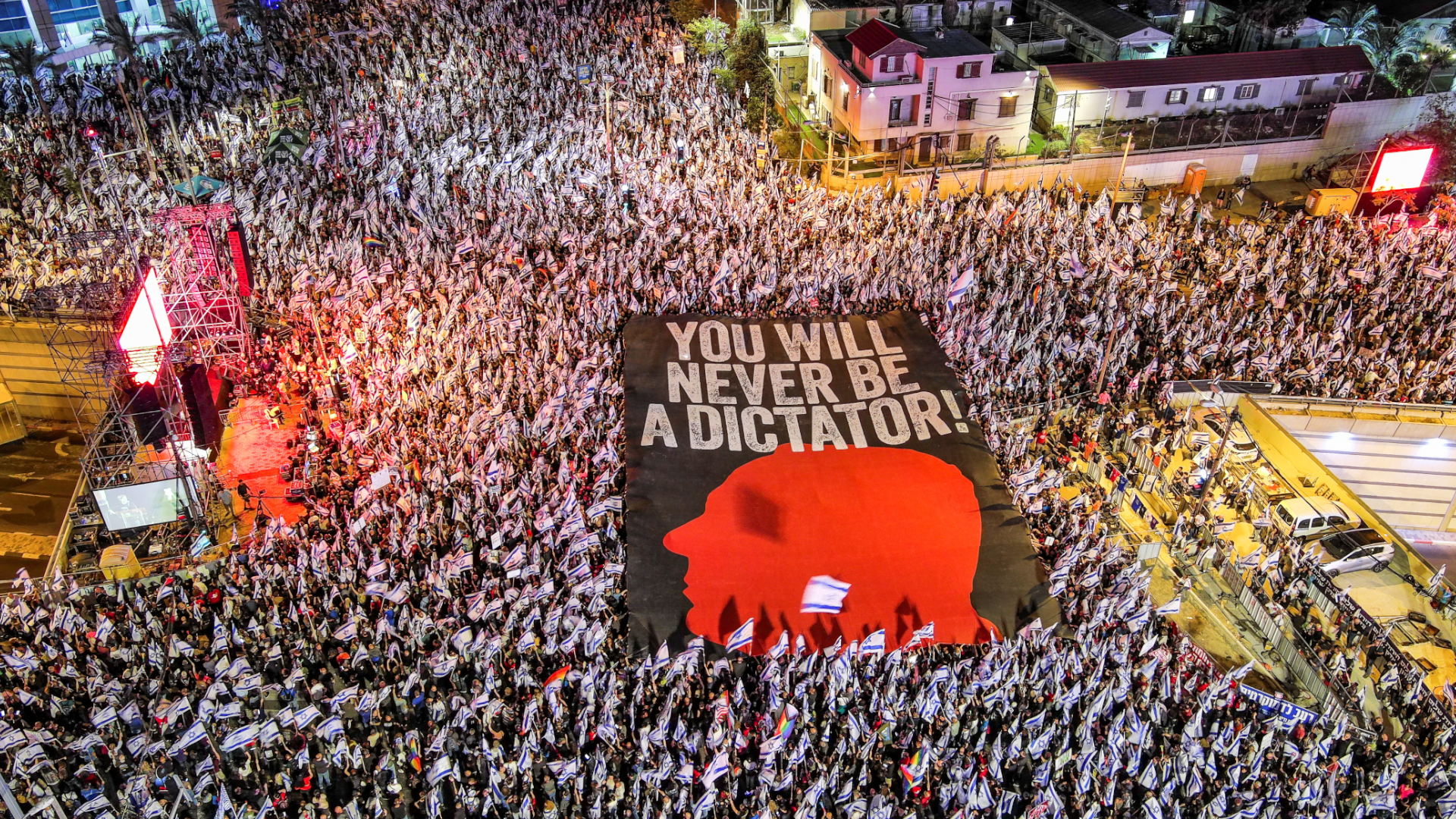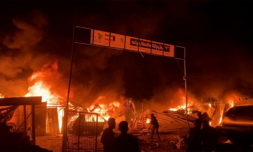The Israeli government is facing pressure for not doing enough to retrieve hostages held by Hamas in Gaza. Hundreds of thousands of people took to the streets in Tel Aviv to protest on Sunday, while widespread labour strikes are planned for the rest of the week.
Hundreds of thousands of Israelis took to the streets of Tel Aviv on Sunday, demanding their government agree to a ceasefire in order to secure a hostage return deal with Hamas.
The protests were sparked after the bodies of six captives were recovered by Israeli Defence Force (IDF) soldiers from underground tunnels in southern Gaza on Saturday.
Forensic examinations conducted by Israel’s health ministry suggest they were killed 48–72 hours before being found.
‘It’s a mix of grief and anger,’ protestor Niv Keidar told Business Insider. ‘There must be a deal that will bring back alive those people that are still possible to rescue.’
Sunday’s protests marked one of the largest anti-government demonstrations in Israel since the Gaza war began nearly 11 months ago. The movement continued again on Monday, with protestors carrying Israel flags and holding photographs of hostages who are still missing.
Those present at demonstrations expressed their belief Israeli Prime Minister Benjamin Netanyahu is to blame for not doing enough to bring the hostages home safely.
On Sunday, protestors could be heard chanting ‘Officer, officer, who are you protecting? Bibi [Netanyahu], you’re killing the hostages.’ One held a sign which read: ‘You are the head. You are to blame’.
Demonstrators blocked a motorway running through the heart of Tel Aviv. They lit a bonfire in the middle lane, filling the road with drumming and singing. Police officers attempted to contain the protest but were unsuccessful.
Others protested outside Netanyahu’s office in West Jerusalem.
Wow. Aerial video of massive protest in Tel Aviv, Israel tonight of nearly 300,000 people, demanding a ceasefire hours after bodies of 6 hostages were retrieved from Gaza tunnel. Largest rally since war: pic.twitter.com/2KtqWUk7ef
— Joyce Karam (@Joyce_Karam) September 1, 2024




















